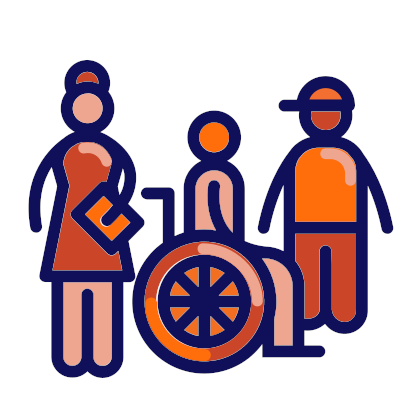Dealing with propaganda, misinformation and fake news

It is vital for schools to provide students with a solid education on media and information literacy as part of the curriculum.
Teachers must be well-trained in the subject to empower students with the necessary competences to critically understand and assess information reported by all forms of media.
Projects in partnership with national and local authorities and media organisations are encouraged.
Facts & figures
Two thirds of EU citizens report coming across fake news at least once a week.[1]
Over 80% of EU citizens say they see fake news both as an issue for their country and for democracy in general.[2]
Half of EU citizens aged 15-30 say they need critical thinking and information skills to help them combat fake news and extremism in society.[3]
What is propaganda, misinformation and fake news?
The terms ‘propaganda’, ‘misinformation’ and ‘fake news’ often overlap in meaning. They are used to refer to a range of ways in which sharing information causes harm, intentionally or unintentionally – usually in relation to the promotion of a particular moral or political cause or point of view.
It is possible to separate out three clearly different uses of information which fall into this category:
- Mis-information - false information shared with no intention of causing harm
- Dis-information - false information shared intentionally to cause harm
- Mal-information - true information shared intentionally to cause harm.[4]
Although none of these phenomena are new, they have taken on new significance recently with the widespread availability of sophisticated forms of information and communication technology. The sharing of text, images, videos, or links online, for example, allows information to go viral within hours.
Why is propaganda, misinformation and fake news important at school?
Since information and communication technology is so central to their lives nowadays, young people are particularly vulnerable to propaganda, misinformation and fake news. Young people spend a significant amount of their time watching television, playing online games, chatting, blogging, listening to music, posting photos of themselves and searching for other people with whom to communicate online. They rely heavily on information circulated online for their knowledge of the world and how they perceive reality. Many parents do not have sufficient technical competence to keep up with their children’s online activity, or educate them about the risks they might be facing. Schools, therefore, have a duty to provide young people with the critical and information skills which they cannot access at home.
“The significant rise of fake news as propaganda in recent years makes it critical that students have the skills they need to identify truth and discern bias.”[5]
The ability to respond critically to online propaganda, misinformation and fake news is more than a safe-guarding tool, however, it is also an important democratic competence in its own right. Analytical and critical thinking, and knowledge and critical understanding of the world, including the role of language and communication lie at the heart of the Council of Europe Reference Framework of Competences for Democratic Culture. They are central to Digital Citizenship Education and Media and Information Literacy.[6]
“School is the one place where it is absolutely crucial to train future citizens to understand, to criticise and to create information. It is in schools that the digital citizen must begin and maintain constant critical thinking in order to attain meaningful participation in his or her community.”[7]
The ability to handle off-line as well as online propaganda, misinformation and fake news is also a key skill in a number of other school subjects, e.g., History, Social Studies, Science, Religious Studies and Art. Young people may study the use of nationalistic and patriotic slogans, or so-called ‘atrocity propaganda’ in WW1 in History, for example; or art forms designed to support particular ideologies in Art lessons.
Another area in which information and communication technology is becoming an issue for schools is through adverse comments made about teachers and schools on social media. Schools are finding that parents and others increasingly turn to social media when they have a dispute or disagreement with their school, e.g., over school rules, school policies, or staff behaviour. How to handle online critical or defamatory comments or campaigns of this sort has become a matter of concern for leaders and managers in some schools.[8]
What are the challenges?
There are a number of challenges facing schools wishing to take propaganda, misinformation and fake news seriously as an educational or social issue:
- Teachers’ own online activity and area of experience is often quite limited and frequently lags behind that of their students. This can make them reticent to take on this area of teaching and learning without a significant commitment to professional development.
- The speed with which technology and young peoples’ online activity changes makes it difficult for teachers to keep up-to-date with recent developments. Even professional development programmes can go rapidly out-of-date.
- It can be difficult finding a discrete slot in the school timetable where issues relating to the creation and sharing of information can be taught. While aspects may be raised in a number of subjects, it can be a problem finding a space in an over-full curriculum where the phenomenon can be dealt with head-on as an issue in its own right.
- The description ‘fake news’ does not mean there is such a category as ‘true’ news. All news is a selection and written to suit a particular audience for a particular purpose. Providing the depth of analysis and sophisticated skills that do justice to this topic can be a challenge for some schools, especially in terms of teacher competence and training.
“States should take measures to promote media and digital literacy, including by covering these topics as part of the regular school curriculum and by engaging with civil society and other stakeholders to raise awareness about these issues.”[9]
How can schools get active?
Providing training for teachers on media and information literacy is the key to raising the profile of the issue in schools. Even though it may have a tendency to date, training can at least alert teaching staff to the importance of this area of learning for their students. The more important teachers see the area, the more they will feel the need to continuously up-date their skills themselves.
While it is important to recruit as many teachers as possible to this work, it can be more effective in the long run to start by appointing an individual teacher, or a small team, to lead on media and information literacy in the school. This element of specialist expertise can be charged with:
- Keeping staff up to date with new developments in information and communication technology
- Training them in strategies for handling propaganda, misinformation and fake news
- Helping them integrate these issues into the curriculum of different subjects
- Leading on school-policy development and action planning in this area.
In addition to these sorts of developments, there are a number of other initiatives a school can take to meet the challenges of the rapidly changing world of online propaganda, misinformation and fake news. These include:
- Special days or events in school on the subject of propaganda, misinformation or fake news as a way of overcoming the problems of an over-crowded formal curriculum
- Peer education initiatives in which older students instruct and counsel younger students in the safe handling of information they access in the media
- Partnerships with outside professionals or companies with expertise in this area, e.g., journalists, IT companies, universities
- Virtual links with schools in other regions or countries enabling students to get a different perspective on news and current affairs
- Recruiting parents with expertise in information and communication technology to help with school policy development or work alongside teaching staff to enrich student learning.
[1] Flash Eurobarometer 464 , 2018
[3] Flash Eurobarometer 455, 2018
[4] Wardle & Derakhshan, H., 2017. Information Disorder: Toward an interdisciplinary framework for research and policy making. Strasbourg, France: Council of Europe.
[5] When is fake news propaganda?, Facing History and Ourselves, 2018
[6] Digital Citizenship Education Handbook, 2019
[8] Council of Europe: Managing Controversy: a whole school training tool, 2017
[9] OSCE: Joint declaration on freedom of expression and “fake news”, disinformation and propaganda
 Resources on Dealing with Propaganda, misinformation and fake news
Resources on Dealing with Propaganda, misinformation and fake news
 Related schools projects
Related schools projects
Address:
Country: England, United Kingdom
Project: Embedding Whole-School Student Voice
 Working language during the project:
Working language during the project:
- English
 Themes of the Council of Europe campaign “FREE to SPEAK, SAFE to LEARN - Democratic Schools for All” covered:
Themes of the Council of Europe campaign “FREE to SPEAK, SAFE to LEARN - Democratic Schools for All” covered:
- Making children’s and students’ voices heard
- Addressing controversial issues
- Preventing violence and bullying
- Dealing with propaganda, misinformation and fake news
- Tackling discrimination
- Improving well-being at school
 Competences from the Reference Framework of Competences for Democratic Culture (CDC) addressed and where / how they were integrated:
Competences from the Reference Framework of Competences for Democratic Culture (CDC) addressed and where / how they were integrated:
- Respect
At the heart of this project is the value of respect for self, respect for others and respect for education. Through the project we will establish a clear set of respect protocols to ensure that all students are able to fully participate and contribute to discussions in a safe and respectful environment. - Valuing human dignity and human rights
Teaching of Human Rights education through our Citizenship, PSHCE and Holistic Curriculum will form an essential basis of this project. - Empathy
All students will have a series of taught and skills development sessions on the value of empathy and how to develop it. These will consist of assemblies, taught sessions through the PSHCE curriculum and key workshops.
 Target group age range:
Target group age range:
- 11-15
- 15-19
 Level of education:
Level of education:
- Lower secondary education
- Upper secondary education
Short description of the project:
This project aims to build a fully democratic and inclusive school where all students are represented in democratic processes and have a voice in shaping the ethos and principles of the school. This will incorporate student representation at Local Governing Body and Leadership level, in policy review processes and through Student Leadership and School Council activities. Staff and students will work together to establish the core principles of our democratic school and these will be clearly communicated, both internally and externally, as fundamental to the school’s ethos. An Equality and Diversity Group will be established and will meet six times per year. This will be an open access group where all students within the school community have an opportunity to fully participate.
A number of key events will be established and delivered on an annual basis. These will include:
- A Question Time event where students will form part of the panel alongside Members of the British Parliament.
- The school will establish ongoing debating activity and discussion groups and will commit to entering teams in Debating and Mock Trial events.
- Linking activities such as ‘Carry My Story’ and the ‘Journeys Project’ where students are able to connect to community organisations and to other schools in order to develop their knowledge and understanding of the world.
All students in the school will also participate in a ‘mock General Election’ event to coincide with the UK General Election on 12th December. This will include delivery of taught lessons for all students on the democratic process and the UK electoral system. All students will have an opportunity to discuss and debate the policies of the different parties and will participate in a voting exercise on Election Day.
In addition, our Environmental Action Group of students will continue to run their campaign and we will commit to supporting and facilitating this wherever possible. We will also help to empower a number of other nascent student action groups including ‘Votes at 16’ and ‘Women and Leadership’.
We will work with a number of key partners to support this work and to enable our students to engage at a local, regional, national and international level. These will include six Universities, The British Council, The UK in a Changing Europe, Young Citizens, NECE and any other organisations who are willing to engage with our young people and add value to our work.
A steering group will be established to drive this agenda forward – this will consist of Student Representatives, Governor Representatives, members of the School Leadership Team and key members of staff.
 Aims/objectives
Aims/objectives
- To embed student representation at all levels of decision making.
- To empower students to have a sense of ownership of their school and to enable all students to make a contribution to the current and future direction of the school.
- To enable all students to feel included, safe and respected within the school community.
- To enhance our students understanding of local, regional, national and global contexts, debates and issues.
- To ensure that all our students have a voice and are confident that they are able to make a contribution.
 Expected results/outcomes
Expected results/outcomes
We would anticipate that our students feel increasingly empower and engaged and have a greater sense of autonomy and ownership over their capacity to learn, engage and change. We would also expect that all our students feel that they have improved their knowledge and awareness of political and democratic processes in the UK. We will collect data at the start and end point to ascertain whether we have established a culture change through this initiative.
 Changes
Changes
As outlined above, increased structural and systematic representation of student voices.
 Challenges you faced
Challenges you faced
This is a major, whole-school initiative which will require energy and commitment from all stakeholders. We will also need to have a clear communication strategy which includes all members of our school community, parents and families and a number of key external partners.
 Time-frame of the project:
Time-frame of the project:
- November 2019 to July 2021
 Council of Europe materials on citizenship and human rights education used while preparing or implementing your practice:
Council of Europe materials on citizenship and human rights education used while preparing or implementing your practice:
- Reference Framework of Competences for Democratic Culture
- Living Democracy - manuals for teachers
- Democratic governance of schools
- Addressing violence in schools through EDC/HRE
- All Different – All Equal
- Managing controversy
- Teaching controversial issues-training pack
- Human Rights and Democracy Start with Us – Charter for All
- How all Teachers Can Support EDC/HRE: A Framework for the Development of Competences







